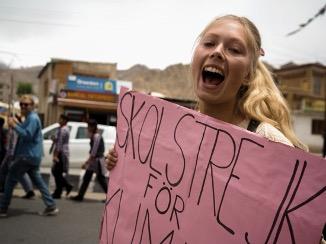EBAN PH.D. COURSE WITH RETREAT 2025
EBAN PH.D. COURSE WITH RETREAT Organized by EBAN and Karlstad university, Sweden november 2025

Title and scope: What does it mean to be educated in the Anthropocene – how to make sense of teaching, learning and the role of knowledge?
COURSE START: OCTOBER 6TH (ONLINE)
RETREAT: TUESDAY 4 – FRIDAY 7 NOVEMBER 2025 IN SIGTUNA, SWEDEN
Focus: Critical examination of new research theories, approaches, methodologies, concepts, and research strategies applied in the context of educational research and/or environmental humanities.
Central activities during the 4-day retreat: Seminars and presentations, including keynotes, workshops, and activities outside, good time for Ph.D.-students to present and get their research projects discussed in smaller groups together with senior researchers, as well as text seminars on selected key texts within the syllabus. (Accommodation, food included, is covered by the network.)
We are currently working with a schedule and will send it out as soon as possible. If you have any questions, do not hesitate to contact us! sofia.wijkmark@kau.se or kenneth.nordgren@kau.se
Register no later than June 16 by e-mail to: sofia.wijkmark@kau.se
---
Doctoral Course Announcement: Bildung and Learning in the Anthropocene
This interdisciplinary doctoral course invites participants to critically examine how planetary-scale human impact reshapes knowledge production, pedagogical practices, and the concept of Bildung (cultivation through education) in an era of ecological precarity. Engage with urgent questions about education’s role in fostering resilience, ethical agency, and epistemic pluralism amid unprecedented planetary conditions.
Course Structure
- Preparatory Phase: Two online seminars (via Zoom) to establish foundational concepts and frameworks.
- Four-Day Immersive Retreat: In-person sessions featuring:
- Keynote lectures by leading scholars in environmental humanities and education.
- Collaborative workshops to reimagine learning for the Anthropocene.
- Dedicated sessions for participants to present and discuss their own research with senior scholars and fellow PhD peers, receiving tailored feedback.
Thanks to generous funding from the Swedish Research Council, participation—including accommodation and meals—is fully subsidized. Limited spots available; priority given to early applicants.
Why Attend?
- Critically analyze the intersections of Bildung, pedagogy, and planetary crises.
- Present your research and refine ideas through dialogue with experts and peers.
- Develop actionable insights for integrating Anthropocene-aware frameworks into teaching and research.
- Build networks with scholars shaping the future of education in a climate-changed world.
Scholars giving lectures on the course
Sofia Ahlberg
Senior Lecturer and Associate Professor, Department of English, Uppsala University. Specializes in literature, climate change, and pedagogy, with a strong focus on ecofiction and the role of literary studies in addressing the Anthropocene. She is committed to developing classroom practices that respond to urgent global challenges and has published extensively on climate pedagogy and teaching literature in times of crisis.
Jesper Garsdal
Senior Associate Professor, VIA University College, Denmark. Expert in religious education, philosophy, and citizenship, with a research interest in Bildung and the development of democratic and ethical competencies in education. His work explores how philosophical and religious perspectives can inform teaching practices that address contemporary global challenges.
Martin Gren
Professor of Human Geography, Linnaeus University. Focuses on the Anthropocene, cultural geography, and environmental humanities, with particular interest in how societies adapt to the new climate regime. His research examines the cultural and spatial dimensions of environmental change and the role of education in fostering ecological awareness. Gren leads research groups dedicated to interdisciplinary studies of human-environment relationships.
Dolly Jørgensen
Professor of Environmental History, University of Stavanger, Norway. Specializes in human-animal relations and ecological restoration, with a research agenda centered on cultural histories of animals and environmental change in the Anthropocene. She is co-editor-in-chief of Environmental Humanities and co-directs The Greenhouse Center for Environmental Humanities. Jørgensen’s work is highly influential in connecting historical perspectives with current debates on sustainability and biodiversity.
Jonas Andreasen Lysgaard
Associate Professor, Danish School of Education, Aarhus University. Specializes in environmental and sustainability education, with a focus on the role of independent school forms (such as folk high schools) in addressing future challenges. His research explores the intersection of pedagogy, Bildung, and sustainable development, aiming to equip educators with tools for transformative teaching. Lysgaard is a recognized leader in research on alternative educational models and their societal impact.
Kenneth Nordgren
Professor of Social Science Education, Karlstad University. Focuses on history education, intercultural learning, and curriculum development, with research highlighting the role of historical consciousness in shaping identities and societal change. He leads the Centre for Social Science Education and is committed to research-based teacher training. Nordgren’s work addresses the challenges of teaching history and social studies in multicultural societies, emphasizing Bildung and critical thinking.
Martin Stolare
Professor of History, Karlstad University. Specializes in history didactics and social studies education, with a research focus on the interplay between historical scholarship and school practice. He is actively involved in developing research-based teacher education and leads projects that link history teaching to broader societal issues. Stolare’s work emphasizes the importance of didactics and Bildung in fostering students’ historical understanding and civic engagement.
David Tyfield
Professor, Lancaster University. Specializes in the political economy of science, technology, and sustainable transitions, with a focus on innovation and low-carbon futures in the Anthropocene. He is Director of the ‘Science for the Anthropocene’ research theme and hosts the podcast ‘Learning to Fly’, which explores new paradigms for sustainability. Tyfield’s leadership extends to international collaborations on urban infrastructure and ecological civilization.

